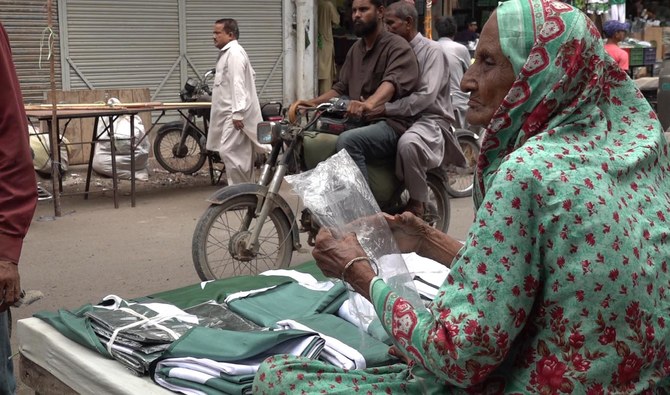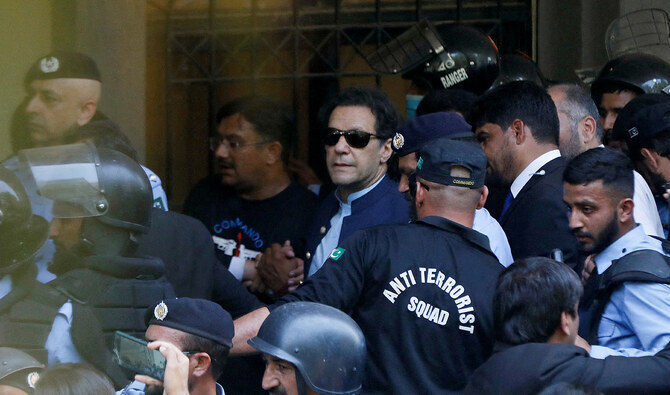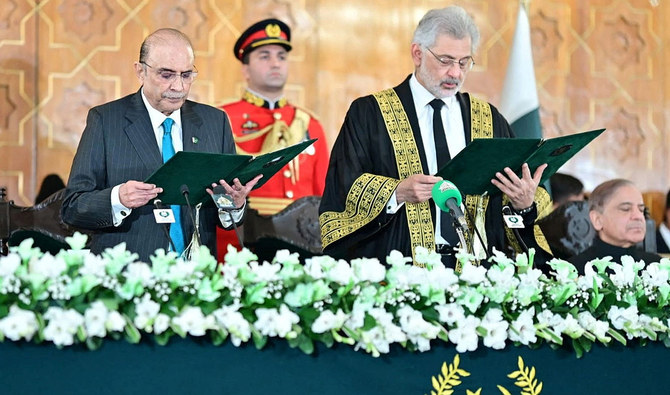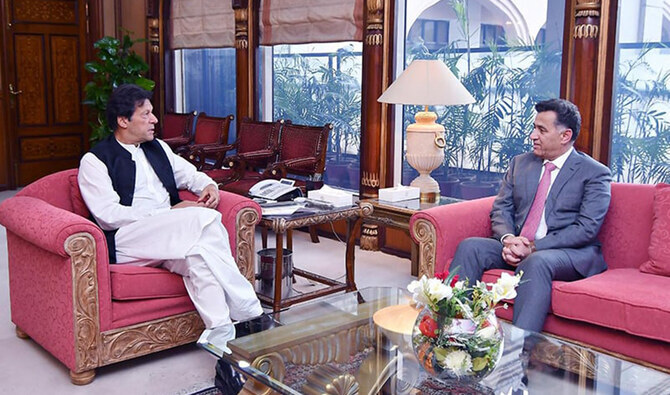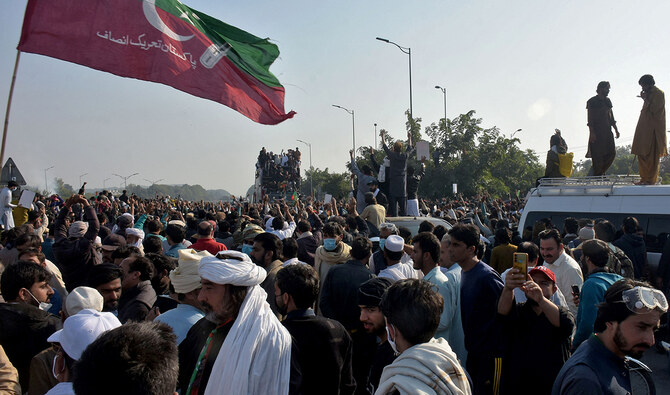KARACHI: Amid a festive environment of colorful decorations and patriotic songs, an 89-year-old woman slowly makes her way to a modest vending stall in Karachi’s bustling Paper Market to sell Pakistan’s national flags and other commemorative items ahead of Independence Day on August 14.
Noor Jahan was just a child when her family decided to migrate to the newly formed and independent state of Pakistan in 1947 amid the violence of partition, which, according to some accounts, claimed the lives of nearly two million people.
Though the passage of 76 years separates her from those grim days when communal violence tore apart communities along religious lines, she remains haunted by the horrors of the past when she witnessed entire villages engulfed in flames and innocent men, women, and children being hacked to death.
“I was around 10 years old when I migrated to Pakistan with my mother and father,” Jahan told Arab News while sitting at her stall to augment her family’s income. “People were being killed on their way to this country.”

Noor Jahan, an 89-year-old street vendor, poses for a picture in Karachi, Pakistan, on August 9, 2023. (AN photo)
“We children used to hide under train seats, with our elders doing everything to protect us,” she recalled while narrating the harrowing details of her voyage to the newfound homeland.
Her life’s journey bears witness to the turbulent pages of history. Each flag she sells today is a testament to her indomitable spirit and a quiet act of defiance against the darkness that once overshadowed her existence.
However, the survivor of violence at the birth of the country is now forced to endure the mounting cost of living, finding it difficult to retire from active working life since she wants to support her children amid mounting inflation.
Her son, Rashid Basheer, a 45-year-old painter, said that he and his brothers were taking up odd jobs due to few employment opportunities, adding that their mother visited the stall every day to help his family financially.
“Due to inflation and since my children are young, I am unable to let my mother rest at home,” he said. “She loves me. When I go out to buy flags, she stays at the stall to deal with customers.”
Most people find Jahan’s presence in the market inspiring, as she sells them flags and other items to make Independence Day more colorful.
“Young people should learn a lesson from her,” Amna Khatoon, a visitor to the stall, said while looking for a large flag to participate in the upcoming national celebrations. “She is working at this age while many of our young people are becoming drug addicts.”
While Jahan’s presence continues to charm many customers, other women at the market do not get the same degree of admiration and only seem to think about the relentless impact of inflation on their livelihood.
“I have been doing this business for the past 12 to 13 years,” said Chanda, a 33-year-old vendor, while speaking to Arab News. “Previously, we earned about Rs15,000 to Rs20,000 per day. But now our sales have declined to only Rs5000 to Rs6000.”

Noor Jahan, an 89-year-old street vendor, is seen selling flags in Karachi, Pakistan, on August 9, 2023. (AN photo)
Pakistan was born 76 years ago and has been through various economic and political crises in its history. However, its recent financial challenges, including an all-time high inflation of 38 percent recorded in May, has impacted businesses of all shapes and sizes.
“Under the current circumstances, our sales are completely down,” Kamla, who sells bangles resembling the colors of the national flag, said. “Still, we are thankful to Allah that we don’t have to beg.”
Muhammad Siddique, a 48-year-old businessman, said the prices of flags and other items had escalated by over 300 percent this year.
“The prices of celebratory goods have increased from Rs100 last year to Rs400 this time,” he informed.
Meanwhile, Jahan said that her only desire was to perform a pilgrimage to Makkah and Madinah, where she could pray for the economic well-being of her children.
“May Allah call me to His House,” she said, “even if He takes my life while I’m there.”


